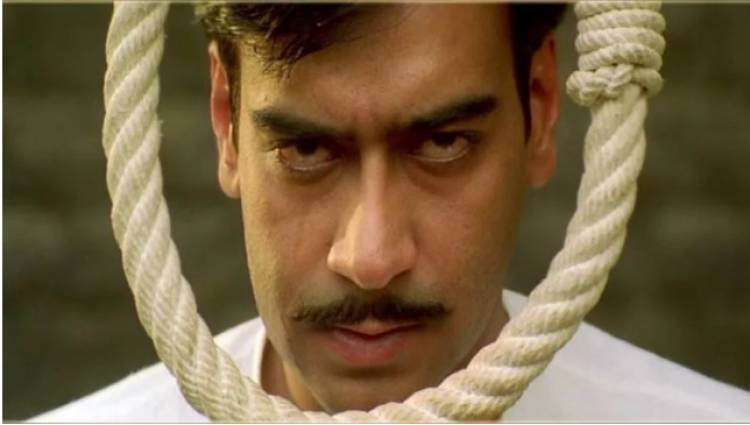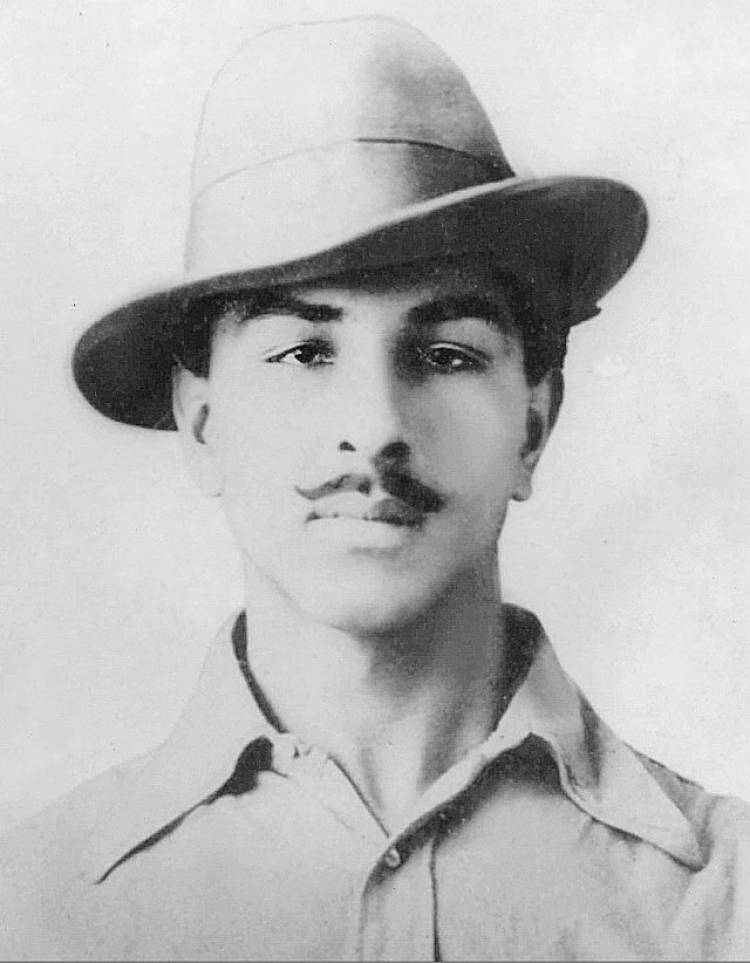Why Bhagat Singh was the greatest Freedom Fighter after Subhash Chandra Bose

Bhagat Singh was a complex and multi-faceted personality. He was described as a tall and thin young man who appeared shabbily dressed, yet he exuded a sense of smartness and self-confidence. His physical appearance aside, his true essence lay in his intelligence, determination, and passion for his beliefs. Despite his youth, he carried himself with a maturity beyond his years.
-
Passion and Determination: Bhagat Singh was deeply passionate about the freedom struggle and was determined to do whatever it took to achieve it. His commitment to the cause was unwavering, and he was willing to make the ultimate sacrifice for it.
-
Fearlessness: Bhagat Singh's fearlessness in the face of adversity was one of his defining characteristics. Whether it was facing police brutality, imprisonment, or even death, he never wavered in his convictions.
-
Intellect: Bhagat Singh was not just a man of action; he was also a thinker. He spent his time in prison studying socialist literature and engaging in discussions on various political ideologies. His intellectual curiosity and capacity for critical thinking set him apart from many of his contemporaries.
-
Open-hearted and Affectionate: Despite his revolutionary zeal, Bhagat Singh was known for his open-heartedness and affectionate nature. He formed close bonds with his comrades and was quick to seek forgiveness if he ever caused offense.
-
Non-religious: Bhagat Singh was an atheist and did not hold any religious beliefs. His worldview was rooted in secularism and socialist principles.
Bhagat Singh's Belief System:
Bhagat Singh's belief system evolved over time, shaped by his experiences, studies, and interactions with fellow revolutionaries. Key aspects of his belief system include:
-
Nationalism: Bhagat Singh was a staunch nationalist who believed in the importance of liberating India from British colonial rule. He saw the struggle for independence as the highest form of patriotism.
-
Socialism: Bhagat Singh was deeply influenced by socialist ideas. He believed in creating a society that was free not only from British rule but also from exploitation and social inequalities. He saw socialism as the way to achieve economic justice and equality.
-
Secularism: Bhagat Singh rejected religious divisions and believed in the unity of all Indians, irrespective of their faiths. His commitment to secularism was evident in his atheism and his vision of a secular and inclusive India.
-
Direct Action: Bhagat Singh advocated for direct action as a means to awaken the masses and challenge the British authorities. He believed that armed actions, when strategically coordinated with the mass movement, could be a powerful tool in achieving freedom.
-
Internationalism: Bhagat Singh admired the Soviet Union and its socialist principles. He expressed solidarity with international movements for freedom and socialism, which was evident in his greetings to the Soviet Union on the anniversary of the November Revolution.
Why Bhagat Singh Was Regarded Highly:

Bhagat Singh stands out among freedom fighters for several reasons:
-
Fearlessness and Sacrifice: Bhagat Singh's willingness to sacrifice his life for the cause of freedom inspired millions of Indians. His bravery in the face of imminent execution made him a symbol of unwavering commitment.
-
Intellectual Engagement: Bhagat Singh was not just a revolutionary; he was an intellectual who engaged with socialist ideas and critically analyzed the political landscape. His intellectual depth added gravitas to his actions.
-
Inclusivity and Secularism: His commitment to secularism and inclusivity, at a time when religious divisions were significant, made him a figure who transcended religious and regional boundaries.
-
Direct Action and Mass Appeal: Bhagat Singh's use of direct action, such as the Assembly bombings, combined with his mass appeal, helped rekindle the spirit of resistance among the Indian masses.
-
Legacy: Bhagat Singh's legacy endures to this day as a symbol of courage, patriotism, and the unyielding spirit of India's struggle for independence. His story continues to inspire generations of Indians.
In summary, Bhagat Singh was a complex and remarkable individual whose personality, belief system, and actions made him a revered figure in the Indian freedom struggle. His fearlessness, commitment to socialism, secularism, and his ultimate sacrifice for the cause of independence set him apart as a symbol of India's quest for freedom and justice.
This Article was written by Historian Uma Desu. This is a Tribute to #BhagathSingh whose birthday is on Sept.28.

 admin
admin 























admin
Good and well organized article